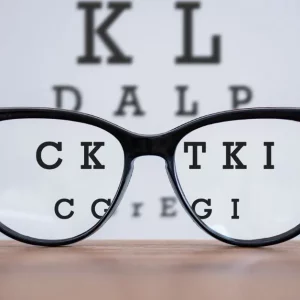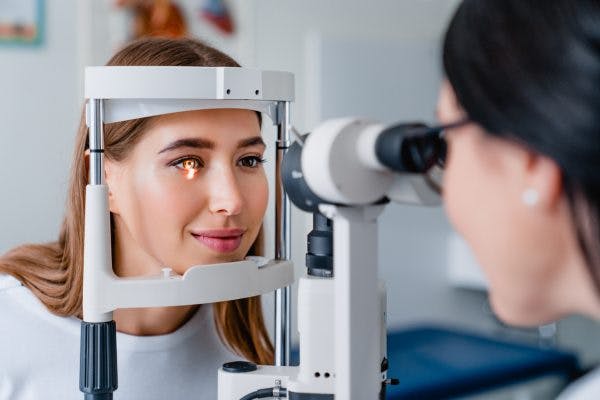The bridge between a traumatic brain injury (TBI) and the immune system is a novel and complex one. Research shows that brain injuries, including mild ones like a concussion, can cause the activity and number of cells in the immune system to change. Therefore, it’s important to understand how to boost your immune system after brain injury.
This article will discuss how a TBI influences the immune system and vice versa, along with helpful ways to fortify your immune system to help promote recovery.
Can a Brain Injury Weaken the Immune System?
The immune system is the body’s natural defense mechanism. It consists of various cells, tissues, and organs that work together to help the body fight infections, bacteria, and other diseases.
After TBI, the brain requires the support of a functional and healthy immune system to stabilize and repair itself. This can be challenging when a TBI results in tissue damage and/or inflammation. So, can a brain injury weaken the immune system? Yes, both directly and indirectly.
Immune mediators play a key role in the pathogenesis, or the development, of a TBI such as the extent of the damage and subsequent repair. For instance, astrocytes and microglia (two types of cells) help initiate an anti-inflammatory response after a head injury. Microglia cells specifically defend the brain against external opposition.
When the brain sustains an injury, microglia migrate to the damaged brain site and help clear cell debris, or leftover waste after a cell dies. This helps prevent further harm to surrounding, healthy cells. Microglia are also capable of secreting cytokines and other growth factors after TBI. Thus, changes within the brain can influence the response of these cells and weaken the immune system.
How a Brain Injury Can Affect the Immune System
When the immune response has been weakened, the brain struggles to repair itself and the chances of secondary tissue damage increases. Secondary damage can often cause longer lasting effects as opposed to primary damage.
Studies have shown that TBI can increase secretion of cortisol, also known as the stress hormone. This usually occurs within the first 72 hours after sustaining a brain injury. Excessive cortisol reduces the overall number of lymphocytes, white blood cells that help identify and destroy harmful cells. This makes the body more susceptible to infection after brain injury.
TBI can also suppress the immune system indirectly due to lack of physical activity. Secondary effects such as fatigue or motor impairments can cause a decrease in activity in brain injury survivors. While these effects are common, lack of movement can slow the body’s metabolism and blood circulation.
Without sufficient blood flow in the brain, the immune cells may struggle to receive the oxygen and nutrients necessary to function properly. Thus, with a weakened immune system, the risk of developing serious infections can increase.
Every brain injury is different, therefore there is no formula to determine the exact outcome. However, there are preventive measures individuals can take to lower the risk of infections or other TBI complications. Additionally, there are many ways survivors can boost their immune system after brain injury.
Boosting the Immune System After TBI
The immune system works hard around the clock to protect the body from infections and diseases but still, it needs our help. We need to give our immune system adequate tools to use.
Here are some of the most effective ways to boost your immune system after TBI:
1. Get Plenty of Sleep
During restful sleep, the immune system releases cytokines, or proteins, that help fight off infections. Therefore, insufficient sleep can weaken the immune system. Studies showed the adults who slept fewer than 6 hours a day every night were more likely to get sick than those who slept at least 6 hours and more.
Sleep disturbances may occur in about 30-70% of TBI survivors, making it more difficult to get adequate rest. There are a few methods you can try to promote better sleep after brain injury.
This can include:
- Create healthy sleep habits. Changing your lifestyle can help regulate your sleep. For instance, you can try waking up and going to bed at the same time each day. Also try to avoid using your phone, computer, or any other electronic devices right before bedtime.
- Use natural sleep remedies. Natural remedies such as herbal tea and melatonin can help you relax and get your sleep cycle back on track.
- Limit naps during the day. Taking naps during the day can sometimes interfere with a good night’s sleep. If you do take a nap during the day, try to take it earlier in the day and limit it to about 20-30 minutes.
- Try medications. Your doctor may be able to prescribe medications that can help you sleep. However, medications should only be used as a last resort because some can cause daytime drowsiness or other cognitive problems.
2. Add More Antioxidants to Your Diet
Adding antioxidant-rich foods to your diet is another great way to boost your immune system after TBI. Free radicals are unstable atoms that can damage cells, causing illness/aging. Fortunately, antioxidants neutralize free radicals and help reduce inflammation. This then allows for stronger communication between the cells, which in turn boosts the immune system.
Antioxidant-rich foods include blueberries, cranberries, red kale, green tea, broccoli, and oranges (also a good source of vitamin C). If you are unable to eat any of these foods there are also supplements available as an alternative option.
3. Increase Probiotics
Within the body there are both good and bad bacteria present. In the case of an infection, the number of bad bacteria outweighs the good. Probiotics are known as ‘healthy bacteria’ that assist with bodily functions and help eliminate excess bad bacteria.
Maintaining a balance of bacteria in the gut is important to prevent inflammation and immune suppression, especially after a TBI. Therefore, increasing your probiotic levels to a healthy balance is essential to help strengthen your immune system.
Probiotics also produce neurotransmitters and help improve cognitive function, and can be found in fermented foods such as yogurt, sauerkraut, and kimchi.
4. Participate in Light or Moderate Exercise
After brain injury, many survivors experience physical inactivity due to bed rest, feeling fatigued, or other effects that decrease mobility. However, it’s important to keep your body moving if you have the ability.
Exercise helps reduce inflammation and can enhance your immune system’s ability to regenerate cells. Exercise also increases blood flow and circulation throughout the body allowing for better immune responses.
While prolonged physical inactivity after brain injury can suppress your immune system, extreme high-intensity exercise can potentially be harmful and impair immune function. Therefore, it’s important to find a light to moderate exercise routine that is suitable for you.
On average individuals should aim for 150 minutes of exercise per week, or 30 minutes daily. However, after a TBI the body and the brain may not respond well to excessive exercise so be cautious and set limits within your program. Start with light exercise such as walking and increase intensity from there.
5. Control Your Stress Levels
Stress and anxiety are common secondary effects of TBI. Both, however, can suppress the immune system due to the increased levels of cortisol. Therefore, finding ways to minimize stress and anxiety is crucial.
Practicing mindfulness is a great way to help reduce stress. Mindfulness means focusing on the present moment. For instance, you can have a point of focus that pulls your attention to your body such as your breath. Focusing on your breath gives you the chance to step back and observe your thoughts and feelings with a clear mind.
Along with mindfulness, there are other ways to help reduce stress and anxiety levels. This includes taking warm baths, listening to calm, soothing music, and using aromatherapy or essential oils. The goal is to find a stress-relief method that not only works but that you enjoy as well.
6. Limit Sugar Intake
Sugar can create further risks after brain injury including inflammation, so it’s important to monitor your sugar intake. Sugar can also lead to weight gain and cause a ‘sugar rush’ where energy levels drop, which can compound with post-TBI fatigue.
7. Stay Hydrated
Staying hydrated helps your body eliminate bacteria or toxins that can lead to infection. It also improves blood flow through the vessels to the muscles which can help prevent fatigue and weakness. Staying hydrated is essential and can be done by drinking water throughout the day or consuming fresh fruits that contain water such as strawberries.
8. Get Adequate Vitamin D
Adding vitamin D to your diet is a great way to help heal the brain naturally. Vitamin D regulates genes for brain function and helps boost immune cells while strengthen your bone cells. It also helps with fatigue management and improving impaired memory. Vitamin D along with other essential vitamins can help boost your immune system after TBI and promote recovery.
9. Use Supplements with Caution
Supplements can be another way to obtain the necessary vitamins and minerals you need after a TBI. However, it’s important to get your doctor’s approval before adding supplements to your diet to make sure they don’t interfere with current medications and/or exacerbate existing health conditions.
Bridge Between TBI and the Immune System
The connection between TBI and the immune system is seen clearly through research. Studies have shown that a brain injury can impact the immune system due to increased stress levels, damage to the brain’s infrastructure, and/or decrease in physical activity.
A weakened immune system can further cause a variety of complications or secondary effects after TBI such as infections or fatigue. Fortunately, there are many ways to boost your immune system after TBI and promote recovery. This can include getting adequate amounts of sleep, lowering stress levels, limiting sugar intake, and staying hydrated. We hope through this article you are empowered with the tools to help boost the immune system after brain injury and understand the importance of maintaining a healthy lifestyle during TBI rehabilitation.










